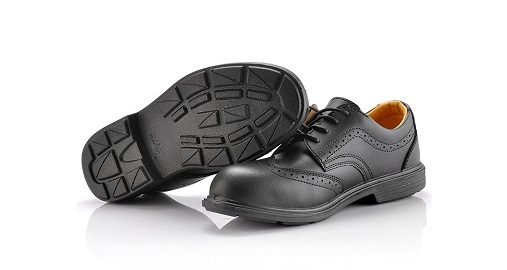
Every trade has a preferred set of tools. For electricians, there will be some tools you believe are crucial in your line of work, while your buddy down the road believes it’s most definitely not required. However, there are some essential tools that absolutely every electrician needs in order to do the job safely, effectively and to an excellent standard.
So, here’s a handy list of the top tools every electrician needs.
1. Multimeter
The multimeter measures multiple electrical properties, including voltage, current, resistance and DC voltage and current. Multimeters are available as analog or digital devices and the newer ones feature some sophisticated bells and whistles such as Bluetooth and thermal imaging cameras.
2. Voltage tester
It’s crucial to know when a wire or device is ‘live’ as if you work on wire while live, there can be dangerous consequences. Used for a quick safety check to ensure there is no voltage in an electrical wire or device, voltage testers are an absolute must. If you can, grab a non-contact voltage tester. These can detect electricity without touching the wire or outlet.
3. Wire strippers
With a variety of holes to ensure you can work with different sizes of wire, strippers are used to cut and strip insulation from electrical wire. The handle should always be comfortable to hold and easy to grip. Some strippers will even include cutting teeth so you can trim the wire ends at the same time.
4. Circuit finder
It’s not always easy to find the circuit directory in every single home and at times, when present, the service panel is very rarely matched with the complementary breaker. Thank goodness for circuit finders – simply plug the transmitter into the outlet and the detector will figure out where the matching directory is. Circuit finders are also handy to simply trace a circuit.
5. Screwdrivers and nut drivers specific to electricians
They may not seem like trade-specific tools and indeed, they’re not. In fact, most people around the world will have some form of screw or nut driver in their own personal toolbox. However, there are some screw and nut drivers that have been manufactured specifically for electrical work.
Failng the specific drivers, ensure you always shave Philips head and flathead screwdrivers with you at all times. Whether it’s removing and installing cover plates, outlets, switches or other devices, they’ll always come in handy. Ensure you have a range of sizes as well.
6. Pliers
A good pair of pliers is a must-have for any and every electrician. Handles should be easy and comfortable to grip and should open and close smoothly. It’s also a good idea to have several sizes to accommodation different jobs. Besides from the traditional pair of pliers, there are others that will most definitely come in handy.
- Side-cutting and diagonal cutting – used to cut wires to specific lengths.
- Needle-nose or long nose – with thin, grasping ends, these pliers make it easier to reach small spaces.
- Tongue and groove – used to remove knockouts from metal electrical boxes and tighten clamps.
7. Fish tape
A fish tape is used to pull stranded or solid wire conductors through metal or PVC conduit. Cable lube is available to assist you in pulling the wires through the conduit. A fish tape can also be helpful when you are pulling NM cable through wall cavities.
This is a tool used when making wiring improvements, such as adding or extending circuits. Casual DIYers who are simply making electrical repairs or replacements rarely need a fish tape, but it is a good tool for more advanced DIYers to own.
8. Tape measure
When it comes to tape measures, there is such a huge variety of styles that it really is a personal choice. Regardless of whether you like it fatter, bulkier, slimmer or one that won’t buckle over long distances, a tape measure is toolkit 101.
9. Hammer
A hammer is used to secure electrical boxes equipped with nail-on brackets to wall studs and other framing members in a home. You’ll also need one to drive wire staples when anchoring new electrical cable to framing members.
10. Level
A small level, such as a torpedo level, fits easily in a tool pouch and is used to make sure your work is level and plumb. A great installation starts with level boxes and straight switch and outlet covers.
A torpedo level should be part of every homeowner’s standard toolkit; it will have plenty of uses beyond electrical work.
11. Torch
Electrical repair and improvement work involves a lot of dark places, from attics and basements, to wall and ceiling cavities, to the insides of electrical boxes.
12. Utility knife
A utility knife, or box cutter, is handy for cutting sheathing from non-metallic (Romex) cable, to cut off electrical tape, and to open cardboard boxes.
Make your tools last
It’s all well and good to ensure you have all the tools of the trade, but if you don’t look after them, it will just end up costing hundreds, if not thousands, to continually replace them.
On top of this, tools that are in better condition are safer and a safer working environment is essential. So, here are some tips and tricks.
Ensure they are stored correctly. Store them in bags, boxes, hang them on the wall or create a dedicated tool shelf, but either way, never leave your tools just lying around. A peg board is a fantastic way to store your small tools.
Make sure the storage place is dry. Humidity and moisture can do a world of damage to your tools so take the required measures to protect them. There’s nothing worse than rusty tools.
Whenever you’re done for the day, clear your tools prior to storing them. A clean cloth to remove any excess oils, sawdust or grease.
Repair your tools when required. Check your tools after every job and take immediate measures to fix anything that needs fixing. If the tool is completely ruined, replace it immediately.
When it comes to the tools you require, it will largely depend on the types of jobs you do. Ensuring your tools are taken care of and that you have the right tools for the job is crucial in the trade industry. Check out our electrical section on our website >> https://bit.ly/3ckuGZd








